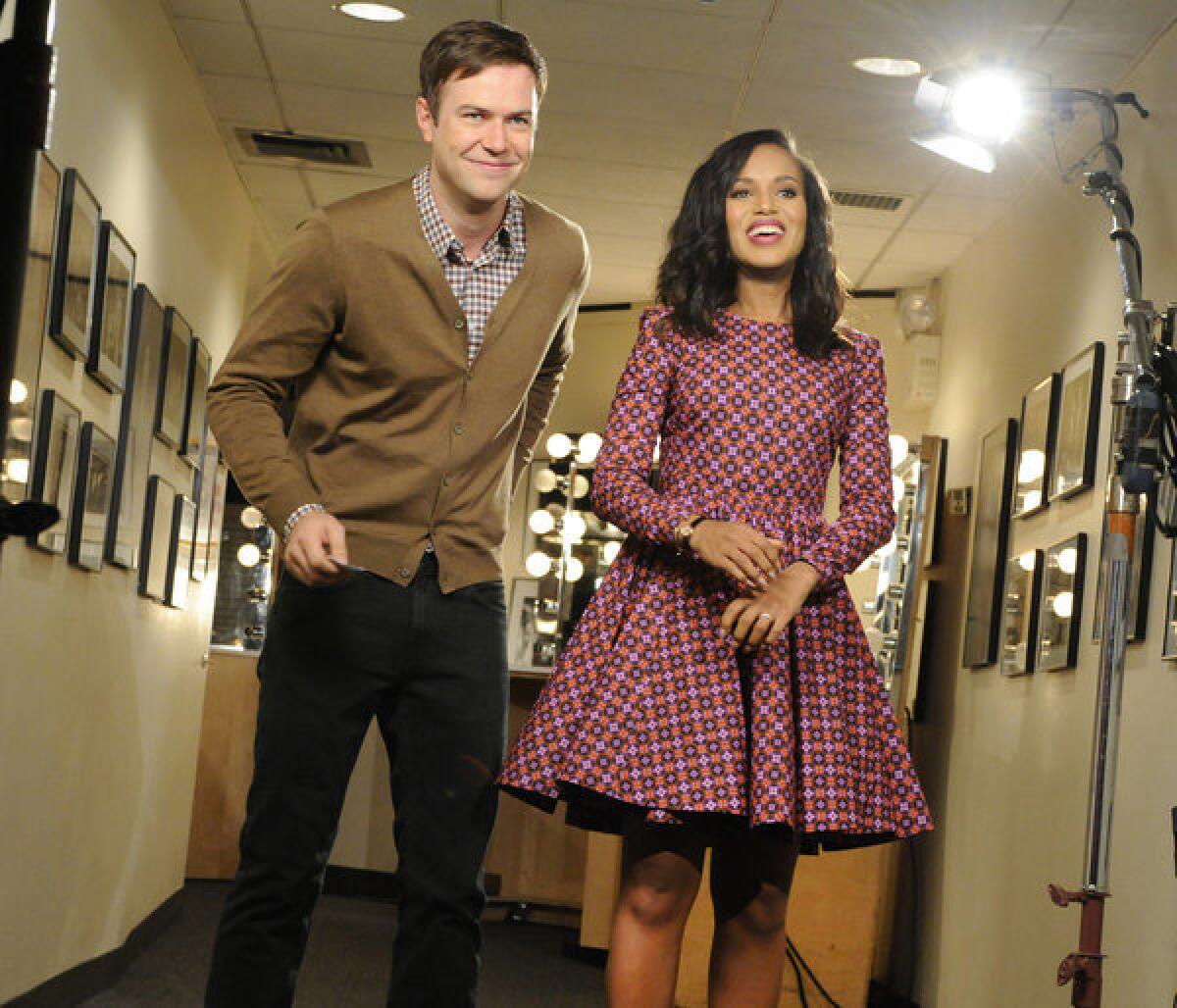‘Saturday Night Live’ on its diversity problem: Arrogant and not funny

- Share via
“Saturday Night Live” acknowledged its diversity problem in the cold open of Saturday’s episode hosted by Kerry Washington. Too bad it was handled in the most arrogant way possible.
In the skit, Washington played First Lady Michelle Obama, talking to the president in the Oval Office. Then Oprah dropped in for a visit, and because “Saturday Night Live” currently has no black actresses on the show, Washington had to exit stage right so she could quickly change her look to perform as Oprah. While Washington was changing costumes, the producers offered the following voice-over and scrolling text:
“The producers at SNL would like to apologize to Kerry Washington for the number of black women she will be asked to play tonight. We made these requests both because Ms. Washington is an actress of considerable range and talent and also because SNL does not currently have a black woman in the cast. As for the latter, we agree that this is not an ideal situation and look forward to rectifying it in the near future unless, of course, we fall in love with another white guy first.”
The skit ended with a cameo from Al Sharpton, proclaiming: “What have we learned from this skit? As usual, nothing.”
The entire bit is irreverent, as you might expect, but it does acknowledge the show’s glaring problem and the mounting criticism “Saturday Night Live” has faced in recent weeks. At the same time, the irreverence is infuriating. The show responded to calls for more diversity irreverently because it doesn’t need to take the problem seriously. It isn’t going to take the problem seriously. In an interview with the Associated Press, producer Lorne Michaels said: “It’s not like it’s not a priority for us. It will happen. I’m sure it will happen.” He does not exactly inspire confidence.
“Saturday Night Live” has been on the air since 1975, and Washington is only the eighth black woman to host the show. For the most part, “Saturday Night Live” is a white boys club and unapologetically so. The current repertory and featured casts feature no black women, no Latino women or men, no Asian or South Asian men or women, and no Indian men or women. Nasim Pedrad, an Iranian American, openly lesbian Kate McKinnon and two black men — Kenan Thompson and Jay Pharoah — offer the show’s only diversity.
There is also little diversity in the cast’s pedigree. Most cast bios are strangely similar. Certainly, there is a traditional path that rising comedians follow, but comedic talent exists beyond, say, the Groundlings, Second City and the Laugh Factory. The producers of “Saturday Night Live” like what they like. It’s not really surprising that the show cannot seem to find a more diverse cast given their demonstrated unwillingness to broaden their comedic interests.
The show’s statement during its Saturday night program reeks of the insouciance of a group of people who don’t really need nor intend to change their ways. The rest of the episode was equally infuriating because it was simply not very funny. To her credit, Washington did excellent work with mediocre material. The jokes she was given plainly revealed how “SNL’s” diversity problem exists both in front of and behind the cameras. The writers truly didn’t seem to know what to do with Washington. Apparently, they can only write for black women when a black man dons drag and caricatures a black woman.
When Richard Pryor appeared on “Saturday Night Live,” he had the show bring fellow black comic Paul Mooney in to write for him. Among others, Mooney is credited with the unforgettable Pryor/Chevy Chase word association sketch. The comedy Mooney wrote for Pryor was edgy and acknowledged race but, most important, it was actually funny, subversive and intelligent — the best of what we want from humor. In an interview with Steve Ryfle for PopMatters in 2010, Mooney says, “I don’t care if it’s morbid or dark, if it has a humor to it, I don’t give a [...] how insulting…”
What so often gets lost in these conversations is that demands for diversity and broader representation are not demands for humor to be less subversive or more politically correct. Instead, it would be nice to see a richer range of humor than that produced by the predominantly white men who write for, act on and produce “Saturday Night Live.”
ALSO:
McManus: A plague on both your parties
LAX shooting: Have we become numb to mass shootings?
Roxane Gay is a frequent contributor to Salon and has two books, “An Untamed State” and “Bad Feminist,” forthcoming in 2014. Follow her on Twitter @rgay.
More to Read
A cure for the common opinion
Get thought-provoking perspectives with our weekly newsletter.
You may occasionally receive promotional content from the Los Angeles Times.






